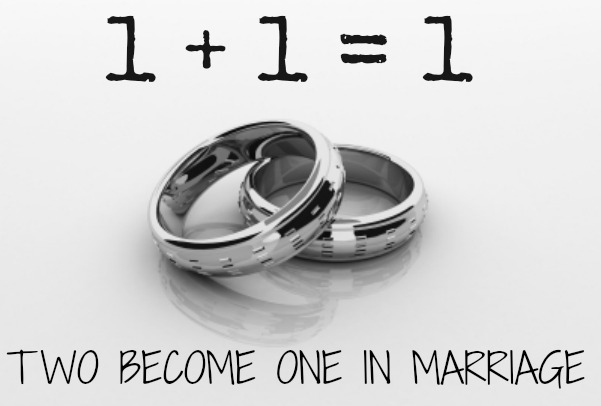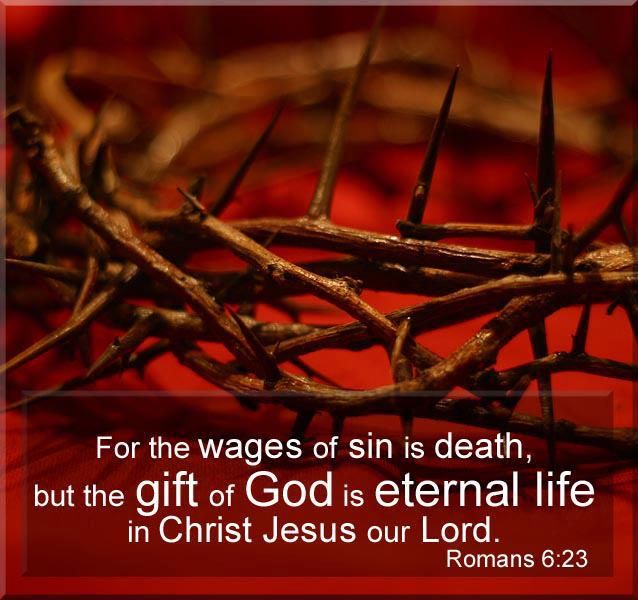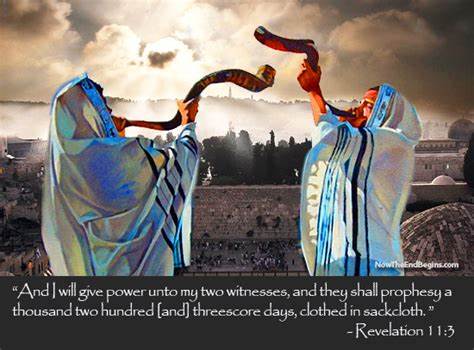Genesis 4:25 – 5 – Week Seven
Last week, we witnessed the first murder. Cain, the firstborn of Adam and Eve, just one generation from the introduction of sin, murders his own brother. And, as a result, he is sent away from the presence of God and goes to the land of Nod, east of Eden.
While he was living in Nod, we know that he was married and his wife gave birth to Enoch. At that time, Cain was busy building a city, so he took liberty with the name and also named the city Enoch. Later verses in Genesis 4 give us a little bit of the history of Cain’s offspring. Enoch had a son named Irad. Irad had a son named Mehujael. Mahujael had a son named Methushael. And Methushael had a son named Lamech. That puts us at 5 generations beyond Cain. And we’re given a little more information about Lamech than any of the other generations.
Genesis 4:19 NIV “19 Lamech married two women. One was named Adah, and the other was named Zillah. 20 Adah gave birth to Jabal. He was the father of people who live in tents and raise livestock. 21 His brother’s name was Jubal. He was the father of everyone who plays stringed instruments and wind instruments. 22 Zillah also had a son. His name was Tubal-Cain. He made all kinds of tools out of bronze and iron. Tubal-Cain’s sister was Naamah.”
We get some ideas about this family from these verses. They lived in tents. Some raised livestock. Others were very much into music. And one son was a metalsmith. However, the first verse tells quite the story. Lamech married two women. This is the first case of bigamy, at least the first one that’s recorded. Now, we all know of many major people in the Bible who had multiple wives. David, the one referred to as the man after God’s own heart; Gideon, and of course, King Solomon all had multiple wives. So what was the big deal of Lamech taking two wives? The problem was that God had already established his perfect idea of marriage.

Genesis 2:24 BSB “For this reason a man will leave his father and mother and be united to his wife, and they will become one flesh.”
Neither Adam nor Eve had a father or mother to leave, so God was establishing the idea of marriage between one man and one woman for all who married. By Lamech taking more than what God intended, as far as wives go, this gives us insight as to how far gone those outside of the presence of God became. Basically, Lamech isn’t satisfied with just one wife, so he does things his own way and establishes the idea of polygamy.
Genesis 4:23 NIV “Lamech said to his wives,
“Adah and Zillah, listen to me!
You wives of Lamech, hear my words!
I have killed a man because he wounded me.
I have killed a young man because he hurt me.
24 Anyone who would have killed Cain would have been paid back seven times.
But anyone who hurts me will be paid back 77 times.”
It’s no wonder that a man who feels entitled to having two wives would justify killing a man who simply wounded him. We have no idea who this young man was or how it came to be that Lamech was wounded. It may have been a physical wound, a financial wound, or an emotional wound. Who knows? But Lamech, much like his great-great-great-great-grandfather, murdered someone whom he felt had done him wrong. In fact, he references his great-great-great-great-grandfather, Cain. He makes the statement that anyone who KILLED Cain would have been paid back SEVEN times. Lamech is so arrogant and feels so superior that HE makes the proclamation that anyone who just hurts him or injures him will be paid back 77 times! That’s ten times what God had vowed with regards to Cain.

The root of sin that was planted in the 3rd chapter of Genesis is producing all sorts of rotten fruit. From Adam and Eve to Cain to Lamech, we have jealousy, hatred, murder, polygamy, division, separation, pride, lying, blaming, scheming, and dysfunction. The absence of the Lord’s presence that began with Cain and followed through with his offspring has resulted in some serious wickedness. Later on, Solomon would write of God’s feelings towards people who exhibited this type of behavior.
Proverbs 6:16 CEV “There are six or seven
kinds of people
the Lord doesn’t like:
17 Those who are too proud
or tell lies or murder,
18 those who make evil plans
or are quick to do wrong,
19 those who tell lies in court
or stir up trouble
in a family.”
Cain and his family throughout the generations represented those who live outside the presence of God and those whom God doesn’t like. As time has gone on, evilness and sinfulness have become the norm. And so it would seem that there was no hope. But in the next verse of Genesis 4, there’s a tiny glimmer of hope that comes with a newborn baby boy.
Genesis 4:25 DRB “Adam also knew his wife again: and she brought forth a son, and called his name Seth, saying: God hath given me another seed, for Abel whom Cain slew.”
The Hebrew word for Seth means “appointed” which indicates that Adam and Eve considered him as “designated” or “decided on beforehand”. You may have noticed that Eve refers to Seth as another seed because Abel was slain. It is thought that she originally saw Cain as the seed that had been promised to her; but when he murdered his own brother and was sent from the presence of God, we assume that Eve realized Cain couldn’t be the true seed to whom God was referring.
Right after we’re told Seth was born, Scripture takes us on to the next generation.
Genesis 4:26 NIV “26 Seth also had a son, and he named him Enosh.
At that time people began to call on the name of the Lord.”
From one son of Adam and Eve, we have jealousy, murder, polygamy, lying, hatred, pride, and arrogance. Basically, the definition of dysfunction. And from another son, Seth, we see that people began to return to the Lord. Good vs. evil. Light vs. dark. As it continues to this day.
If you’re looking at chapter 5 of Genesis, you’ll see that it’s a genealogy beginning with Adam and it’s one of those chapters that we tend to skip because, well, how much could we possibly learn from a list of names? But there are a few things that are worth mentioning.
Genesis 5:1 ICB “This is the family history of Adam. When God created human beings, he made them in God’s likeness. 2 He created them male and female. And on that day he blessed them and named them human beings. 3 When Adam was 130 years old, he became the father of another son. He was in the likeness and image of Adam. Adam named him Seth.”
Verse 1 reiterates that God created man in his own likeness. We’re told that Adam was 130 years old when Seth was born. First of all, I noticed for the very first time that this “family history” of Adam’s doesn’t even list Cain and Abel. Interesting, isn’t it? Normally, one’s family history would contain everyone, even those who are deceased.
Did you happen to notice that we are told that Seth was in the likeness and image of Adam? What’s significant about that is that this was never said about Cain nor Abel. Why would you think that it’s specifically mentioned about Seth but not the other children of Adam & Eve? There are some thoughts out there regarding this, some a bit farfetched (such as Adam wasn’t the father of Cain or Abel), but perhaps Scripture is specific about this because Abel was murdered and had no heir; Cain was an unbelieving murderer, but Seth is the one son who provides a direct lineage to Jesus. Adam was created in God’s perfect image. Seth was born in the image of Adam which we know is a fallen and sinful image, but with a perfect God to call upon.
Genesis 5:4 ICB “After Seth was born, Adam lived 800 years. During that time he had other sons and daughters. 5 So Adam lived a total of 930 years. Then he died.”
These two verses tell us that Adam lived a total of 930 years and that he had other children. And then he died.
Romans 5:12 NLT tells us “When Adam sinned, sin entered the world. Adam’s sin brought death, so death spread to everyone, for everyone sinned.”
Adam had an ultimate consequence for his disobedience and after 930 years, it was time to pay.

The rest of the verses in chapter 5 cover the offspring from Adam through the line of Cain.
We’ve discussed Adam and we’ve talked about Seth. Skip down to verse 21 of chapter 5 “When Enoch was 65, he had a son, Methuselah. 22 After that, Enoch lived in fellowship with God for 300 years and had other children. 23 He lived to be 365 years old. 24 He spent his life in fellowship with God, and then he disappeared, because God took him away.”
Enoch doesn’t die. He’s taken away by God. This happened one other time in the Bible. Elijah! There has to be great significance in this, but we don’t necessarily know what that significance is. I did stumble upon a theory this week that I found fascinating although it’s just that; a theory. Maybe it’s completely accurate; partly accurate or not at all accurate. We won’t know until God chooses to reveal it to us, but it is noteworthy. Revelation 11 tells us about the two witnesses that will be prophesizing for 1,260 days (approximately 3 ½ years). We are told that they will be protected from anyone who tries to harm them. Fire will come from their mouths and kill their enemies. They will have the power to stop the rain from falling and to turn water into blood. They will be empowered to bring about any kind of trouble to the earth and they will have these powers as long as they are prophesying. Verse 7 tells us that when they have finished telling their message, the beast will fight them and will kill them.
The bodies of the two witnesses will lay in the streets for 3 ½ days and then “God put the breath of life into the two prophets again.” Revelation 11:11b ICB They will then ascend into heaven in a cloud while their enemies look on.

Because Enoch and Elijah are the only two that have never died, and Hebrews 9:27 GNT tells us “Everyone must die once, and after that be judged by God” is it possible that Enoch and Elijah represent the two witnesses who are killed by the beast in the end times? Maybe; there’s no way for us to know until God wants us to know. But to add a little bit of credibility is a verse written more than 400 years after Elijah took that chariot ride to heaven. Malachi 4:5 “Look, I will send Elijah the prophet to you. He will come before that great and terrible time of judgment from the Lord.”
In this verse, Elijah is identified as a prophet and in the first chapter of Jude, Enoch is also identified as a prophet. There are certainly similarities between Enoch and Elijah that can’t be overlooked but as I said, it’s just a theory that these are the two witnesses. There are other theories out there that contradict this and in the end, it probably won’t matter to any of us. When we find ourselves surrounded by the glory of God, these little pieces of trivia might seem quite insignificant to us.
The rest of chapter 5 continues on with the family tree of Adam through the lineage of Cain. We won’t read all of the scriptures listing these names, but let me give you a rundown of who is mentioned and the meaning of their names.
Adam means “man.”
Seth means “appointed.”
Enosh means “mortal.”
Kenan means “sorrow.”
Mahalael means “blessed.”
Jared means “shall come down.”
Enoch means “teaching.”
Methuselah means “his death shall bring.”
Lamech means “the despairing.”
Noah means “rest or comfort.”
When put together the names form a sacred message somewhat like this:
Man is appointed mortal sorrow, (fall of man) but the blessed God shall come down teaching (Scripture) that his death shall bring the despairing comfort and rest.[i] (death of Jesus; Matthew 11:28-29)
From Adam to Noah, the meaning of their names actually summarizes the gospel!
One last bit to consider before we close. Do you recall what I said was the meaning of Methuselah’s name?
Look at Genesis 5:25. How old was Methuselah when Lamech was born? 187 years old.
Now, look at Genesis 5:28. How old was Lamech when Noah was born? 182 years old.
Add those two together and you get 369.
Flip on over to Genesis 7:6. How old does Scripture tell us Noah was when the flood came? 600 years old.
Add the 369 to the 600 and what do you get? 969. Now look back at Genesis 5:27. How long did Methuselah live? 969 years. Methuselah whose name means “his death shall bring”. God allowed Methuselah to live longer than anyone else ever. When Methuselah died, the corrupted world was destroyed. If we gather anything from this lesson, it’s found in 1 Peter 3:18 ICB “Christ himself died for you. And that one death paid for your sins. He was not guilty, but he died for those who are guilty. He did this to bring you all to God. His body was killed, but he was made alive in the spirit. 19 And in the spirit he went and preached to the spirits in prison. 20 These were the spirits who refused to obey God long ago in the time of Noah. God was waiting patiently for them while Noah was building the boat.” God waited patiently. The same God who sacrificed His only Son whose death and resurrection we remember today, waited patiently for people to change their hearts. He’s still waiting on some.

